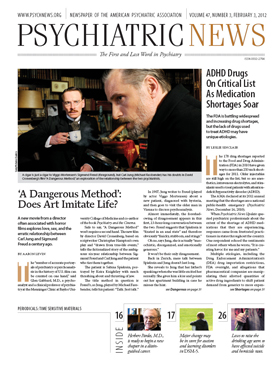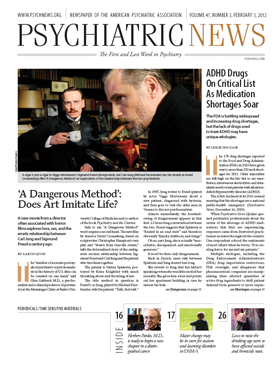Could ADHD be ailing our economy? That was the question addressed by researchers and mental health advocates at a November 30, 2011, congressional briefing on the societal and workplace impact of untreated attention-deficit/hyperactivity disorder (ADHD).
According to new research presented at the event, ADHD cost the U.S. economy between $143 billion and $266 billion in 2010, or roughly $2,000 per household. And while ADHD is commonly thought of as a childhood disorder, adults with ADHD accounted for 73 percent of those estimated costs, reported Peter Neumann, Sc.D., a professor at Tufts University School of Medicine and director of the Center for the Evaluation of Value and Risk in Health at Tufts Medical Center’s Institute for Clinical Research and Health Policy Studies.
Conducted by researchers from Tufts Medical Center and the University of Pennsylvania in collaboration with Shire Pharmaceuticals’ Global Health Economics and Outcomes Research Department, the study examined the cost of ADHD by economic sector.
The majority of costs associated with ADHD were a result of lost productivity (62 percent), followed by expenditures related to health care (26 percent), education (10 percent), and the criminal justice system (2 percent).
After the research presentation, Neumann joined a panel discussion focused on developing effective and efficient solutions to reducing the economic impact of ADHD highlighted in the study.
Laurence Greenhill, M.D., immediate past president of the American Academy of Child and Adolescent Psychiatry, emphasized how establishing effective treatment plans can improve the outcomes of individuals with ADHD, while Ruth Hughes, Ph.D., CEO of the organization Children and Adults With Attention-Deficit/Hyperactivity Disorder, called for future research comparing the economic impact of ADHD patients receiving treatment with the costs associated with those remaining untreated.
As head of The Lab School, a private special-needs school in Washington, D.C., Katherine Schantz stressed the importance of early intervention, recommending the development of curricula tailored to the specific needs of those with ADHD, as well as increased support for teacher training and parent education.
APA Medical Director James H. Scully Jr., M.D., in his capacity as chair of the American Psychiatric Foundation, spoke about the Partnership for Workplace Mental Health program’s focus on ensuring the effective care of employees with ADHD. He also addressed the still-pervasive stigma surrounding the disorder.
“The cost in dollars is interesting, but the human cost is astounding,” said Scully.
According to Judith Warner, a journalist and author of Perfect Madness: Motherhood in the Age of Anxiety, the media’s coverage of ADHD has played a huge role in “trivializing” the disorder. In many ways, she said, the ongoing misrepresentation and misunderstanding of ADHD has caused the disorder to become “the new face of mental health stigma.”
Rep. Tim Murphy (R-Pa.), co-chair of the Congressional Mental Health Caucus, delivered opening remarks at the event, discussing recent concerns about the potential overdiagnosis of ADHD in children and adolescents.
“That kind of fraud and abuse is not only criminal, but it hurts those … with genuine disabilities who really need assistance,” said Murphy. “ADHD isn’t an imagined condition. It’s real and it affects families, schools, and the entire social safety net.”



